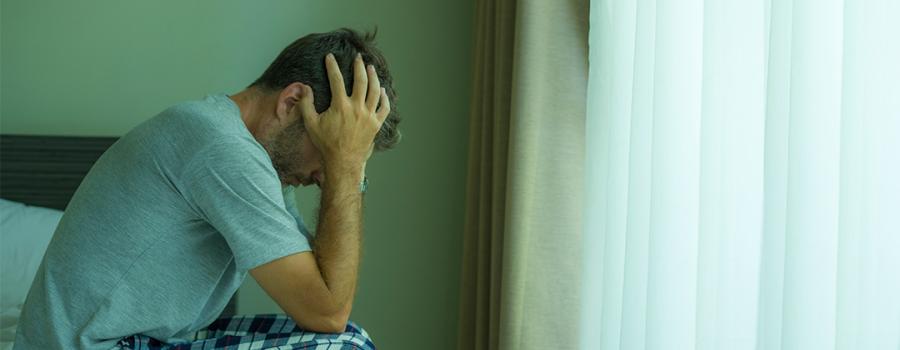Dear Dr. Michelle:
I think I’m depressed, and I don't know who I should to talk to about it. It's been months or maybe years. I cry endlessly and don’t know why. Sometimes I just want to end my life. I am easily irritated even by the little things. I want to go to the doctor, but I don't know where to start. I feel like I am a burden and a disappointment to everyone around me. I'm exhausted. I just want to rest and sleep without waking up.
Lei
Dear Lei:
I am sorry for your sadness. I am concerned about what you are experiencing – it can be very difficult and not easily imagined by others. I truly hope this response helps get you on a path of hope and healing.
You mentioned that there are times when you just want to end your life. If you are having thoughts of suicide or if you have a plan to hurt yourself, please call 911 or the National Suicide Hotline at 800-273-8255 and ask for immediate help. Either of those agencies will connect you to the help you need. In addition to reaching out for immediate professional help, you need to tell a family member or a friend about your thoughts so that they can check in with you and offer personal support.
Based on what you have shared, you could be experiencing clinical depression. You have identified some of the primary symptoms to support this - crying for no reason, irritation, lack of motivation, tired of living, and negative self-thoughts. In addition, you mentioned that this experience is not new. Clinical depression is chronic (happens frequently; over a long period of time)– which fits your description.
The type of depression that you are expressing requires a two-fold approach. First, find a good therapist in order to talk about possible life experiences that might be magnifying your feelings – relationship problems, feeling a lack of purpose, grief and loss, negative self-esteem, dealing with a medical or financial situation, etc. Please follow this link to help you locate a therapist in your area.
You might also be susceptible to depression if some of your brain or body’s natural chemicals are low. Specifically, brain research has shown that clinical depression is related to a chemical imbalance due to low levels of the neuro-transmitter endorphin and low levels of the body’s “happy” chemicals - dopamine, norepinephrine, and serotonin.
Therefore, the second step is to find a healthy way to increase the transmission of endorphins in your body and to elevate your “happy” chemicals. Some natural ways to increase these important chemicals include exercise, laughing, meditation, vitamins C and D, and foods like brightly colored fruits, dark green leafy vegetables, chocolate and other ingredients like chili peppers.
There are also prescription medications that can help depression. Occasionally, a person can be so depressed that they can’t seem to find the motivation to practice natural ways to elevate the body’s chemicals. Medication is sometimes necessary to get those chemicals elevated just enough to break the depressive cycle so that you can regain the emotional energy to face other, more challenging life situations that could be increasing your depression. Given the level of your despair, medication might be an important immediate step in your healing journey.
To consider medication, visit a regular medical health doctor, or primary care physician. If you do not have a primary care physician, call your local medical health clinic and schedule an appointment for a regular routine check-up. Be sure to share with the doctor all the details of your experience, including the question you submitted and this response, to help the doctor better understand what you are going through.
I am also recommending that you develop a safety plan. Get out a piece of paper and start a written plan to include the following:
- Write a statement to yourself whereby you promise to not hurt yourself, but rather, you will reach out and get help anytime you have a suicidal thought or thoughts of taking suicidal action.
- Identify a family member and/or a friend (better to have more than one person) that you can turn to for immediate help.
- Reach out to the individual(s) and tell them about your depressive feelings and any thoughts of suicide. Ask the person permission to include them on your safety plan as someone you can turn to when needed.
- Write a statement on your plan that says you promise to call your identified person (state their name) at any time you need support or if you have thoughts of hurting yourself.
- Write a statement that you promise to call 911 or the National Suicide Hotline if you have suicidal thoughts and your identified support person(s) is not available, and that you will call these agencies if you actually ever have a plan to hurt yourself, before you actually take any harmful action.
- Include in your plan a statement about the things you will do to seek help with your current feelings (examples: learning about medications from your doctor or getting professional therapy).
- Identify one action you can take once a day, every day, that will make you feel better - even if it is for one minute.
This might seem overwhelming, but if you take these actions, you will be able to start a path to manage your depression.
Dear Dr. Michelle blog posts are informational in nature. The posts are not meant to take the place of consulting your physician, mental health professional, or other qualified health providers regarding your well-being or the well-being of others.

